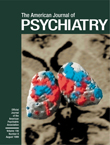Effect of Alcohol on Social Phobic Anxiety
Abstract
OBJECTIVE: Previous research has demonstrated a greater-than-expected association between social phobia and alcohol use disorders. The purpose of this study was to test the hypothesis that drinking alcohol reduces social phobic anxiety. METHOD: Treatment-seeking individuals with social phobia (N=40) were asked to give two impromptu speeches. Twenty subjects received a placebo alcoholic drink before both speeches, and 20 subjects received a placebo before the first speech, followed by a moderate dose of alcohol before the second speech. Subjective anxiety ratings, heart rate, and cognitions related to social anxiety were used as measures of anxiety. RESULTS: Repeated measures analyses of variance yielded no significant differences in anxiety (subjective, physiological, cognitive) between the alcohol and placebo groups. Current and past drinking habits did not significantly alter the effect of alcohol on anxiety. The belief that one received alcohol was significantly related to levels of subjective anxiety and negative cognitions. CONCLUSIONS: Alcohol does not directly reduce social phobic anxiety. The belief that one received alcohol may reduce social anxiety.



